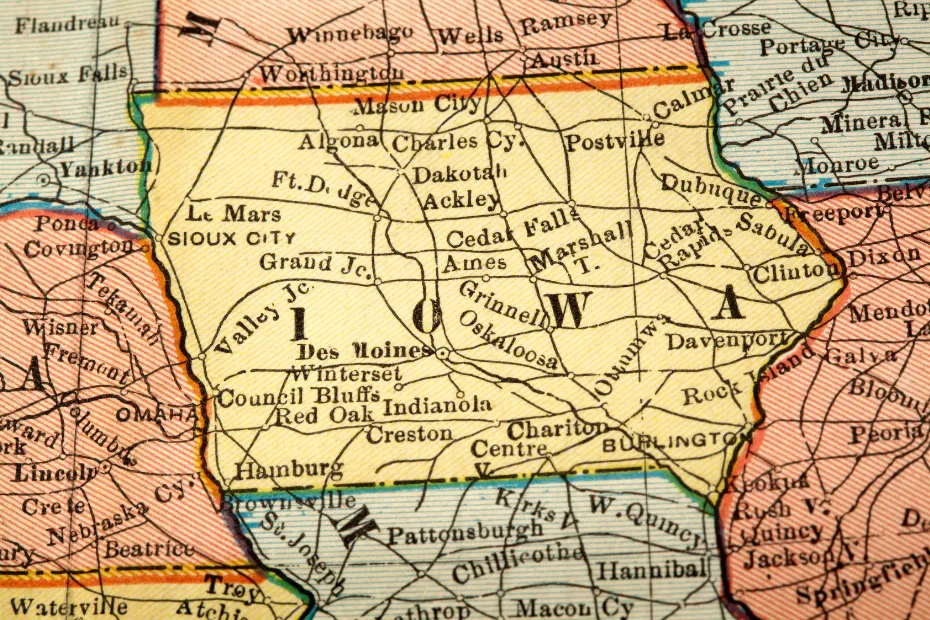How Much Can a Landlord Raise Rent in Iowa?
In Iowa, there is no legal limit on how much a landlord can raise rent.
Iowa does not have any rent control policies, allowing landlords to raise rent by any amount without restrictions.
However, notice requirements for rent increases in Iowa are not as strict as in some other states.

Understanding Rent Increase Laws In Iowa
In Iowa, landlords have the freedom to raise rent by any amount they choose, as there is no legal limit or rent control laws in place.
Is There Rent Control In Iowa?
No, Iowa does not have any rent control policies. It is considered to be a landlord-friendly state.
Are There Any Legal Limits On Rent Increases In Iowa?
In Iowa, landlords can raise the rent by any amount that they wish. There is no legal limit or restriction on rent increases.
What Are The Notice Requirements For Rent Increases In Iowa?
If you are a tenant renting month-to-month in Iowa, the landlord must give you a written notice informing you about the rent increase.
The notice should be given in advance, allowing you sufficient time to prepare for the change in rent amount. However, there is no specific timeframe mentioned in the law regarding the notice period.
If you are a tenant with a fixed-term lease, the landlord cannot raise the rent until the lease term ends. Once the lease term comes to an end, the landlord may choose to negotiate a new rental rate with you.
Related Post: How Much Is A Credit Check For A Tenant Uk: Detail Guide
Tenant Rights And Responsibilities In Iowa

Iowa does not have any rent control policies, so landlords can raise the rent by any amount they wish. However, if a tenant rents month-to-month, the landlord must give written notice of the rent increase.
Requesting A Habitable Unit
In Iowa, tenants have the legal right to request a habitable unit to live in. This means that landlords are required to provide a rental property that is safe, clean, and meets all building codes.
If a rental unit is in disrepair or poses a health or safety hazard, tenants have the right to bring this to the landlord’s attention and request necessary repairs.
Making Written Repair Requests
Another tenant right in Iowa is the ability to make written repair requests. When issues arise in a rental unit, tenants can notify their landlord in writing about these problems.
It is important to keep a copy of the written repair request for documentation purposes. By making written repair requests, tenants ensure that they are being proactive in addressing maintenance issues in their rental property.
Due Process Before Eviction
Tenants in Iowa are also entitled to due process before eviction. This means that landlords must follow specific legal procedures when evicting a tenant.
Before initiating an eviction, landlords are required to provide proper notice to the tenant, allowing them a reasonable amount of time to address any lease violations or unpaid rent. This gives tenants an opportunity to rectify the situation and avoid eviction.
If a tenant feels that their rights are being violated or that their landlord is not complying with these legal obligations, they have the right to seek legal assistance.
An attorney specializing in tenant rights can provide guidance and representation to ensure that tenants are treated fairly and their rights are protected.
Legal Remedies For Tenants In Iowa
In Iowa, there is no legal limit on how much a landlord can raise the rent. Landlords have the freedom to increase the rent by any amount they choose, without justification.
Late Fees And Rent Increases
In Iowa, landlords have the right to charge late fees if the tenant fails to pay the rent on time. However, these late fees must be reasonable and within the limits set by the state law.
Landlords cannot arbitrarily increase the rent without justification. If you are a tenant and your landlord wants to increase the rent, they must provide you with a written notice stating the new rent amount and the effective date of the increase.
The notice should be given in advance, typically 30 days before the change takes effect. This gives tenants enough time to evaluate their options and make necessary arrangements.
Termination Of Lease
Under Iowa landlord and tenant law, both landlords and tenants have the right to terminate a lease agreement. Landlords can terminate a lease if the tenant fails to pay rent, violates the terms of the lease, or engages in illegal activities on the property.
On the other hand, tenants can terminate a lease if the landlord fails to provide a habitable living environment, does not make necessary repairs, or violates the terms of the lease.
It is important to review the terms of your lease agreement and understand your rights before deciding to terminate the lease. If you believe your landlord has violated your rights, seeking legal advice can help you understand the best course of action.
Summary Of Iowa Landlord And Tenant Law
Under Iowa law, landlords are not subject to rent control policies, meaning they can raise the rent by any amount they desire.
However, to ensure fairness and transparency, landlords are required to provide written notice of rent increases to their tenants within a reasonable time frame.
This allows tenants the opportunity to plan and budget accordingly. Additionally, landlords must also adhere to the legal restrictions on late fees and termination of leases. T
enants have the right to a habitable living space and can seek legal assistance if their landlord fails to fulfill their responsibilities.
Frequently Asked Questions For How Much Can A Landlord Raise Rent In Iowa?
What Is The Most A Landlord Can Raise Rent?
In Iowa, there is no legal limit on how much a landlord can raise the rent. Landlords have the freedom to increase the rent by any amount they wish without justification.
Does Iowa Have Rent Control?
No, Iowa does not have rent control policies. It is considered to be a landlord-friendly state with no set limit on how much a landlord can raise rent. Additionally, landlords can terminate month-to-month leases without cause.
What Are My Renters Rights In Iowa?
In Iowa, tenants have the right to live in a habitable unit, request repairs in writing, and receive due process before an eviction. The state does not have rent control policies, and landlords can terminate month-to-month leases without cause. If the landlord fails to comply with these rights, legal help can be sought.
How Much Notice Does A Landlord Have To Give A Tenant To Move Out In Iowa?
In Iowa, the landlord is not required to give a specific notice period to a tenant to move out. They can terminate a month-to-month lease without cause.
Conclusion
In Iowa, landlords have the freedom to raise the rent by any amount they wish, as there are no legal limits or restrictions. This makes Iowa a landlord-friendly state when it comes to rent increases.
It is important for landlords to provide written notice to tenants about the rent increase, especially if the tenancy is on a month-to-month basis.
By understanding the rights and responsibilities of both landlords and tenants, the rental process can be smoother and more transparent for everyone involved.






